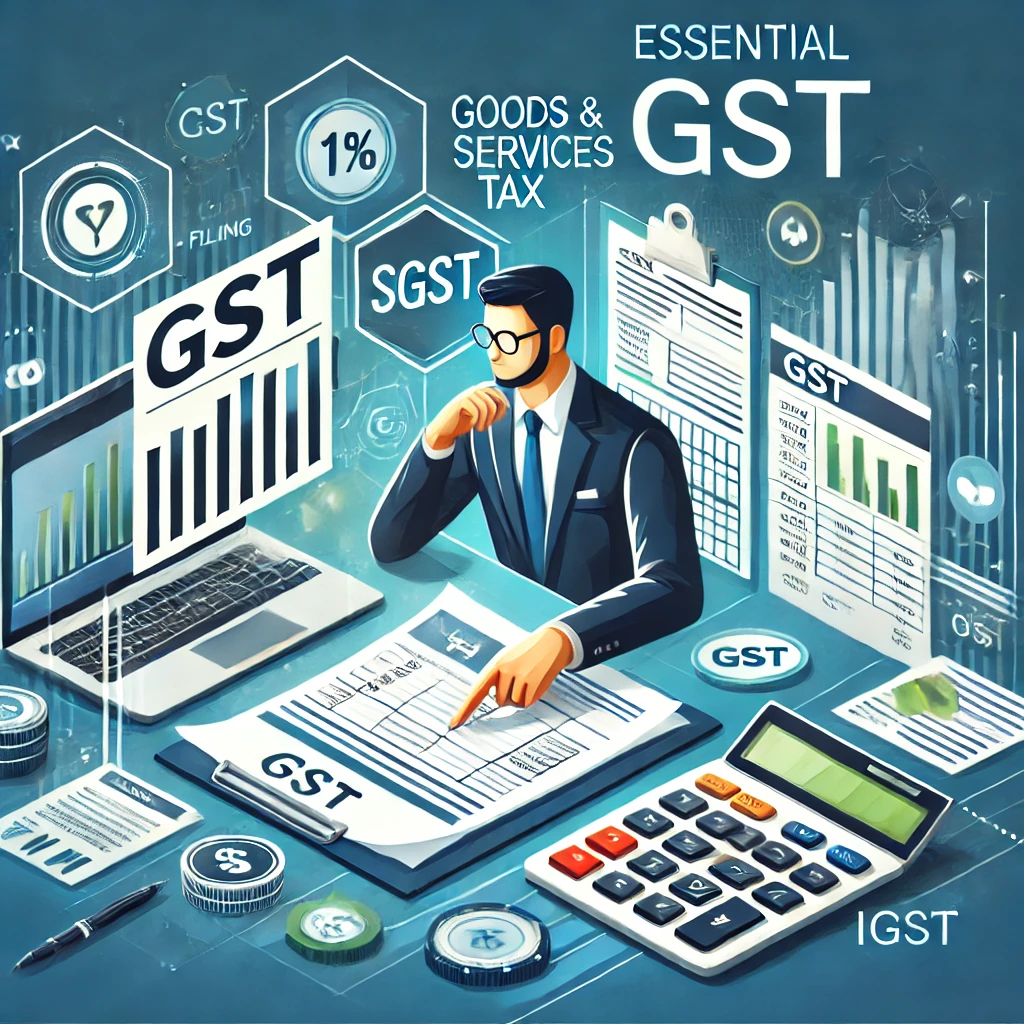The Goods and Services Tax (GST) is a crucial component of the taxation system in many countries, including India. Understanding GST-related terminology is essential for businesses to ensure compliance, avoid penalties, and optimize tax benefits. Below are some of the most important GST terms every business taxpayer should know.
1. GSTIN (Goods and Services Tax Identification Number)
GSTIN is a unique 15-digit identification number assigned to businesses registered under GST. It is necessary for filing returns and availing input tax credit.
2. Input Tax Credit (ITC)
ITC allows businesses to reduce the tax they pay on sales by claiming credit for the GST paid on purchases. This prevents the cascading effect of taxation.
3. Output Tax
Output tax is the GST collected by a business on the sale of goods or services. Businesses must deposit this tax with the government after adjusting for ITC.
4. Reverse Charge Mechanism (RCM)
Under RCM, the recipient of goods or services is liable to pay GST instead of the supplier. This applies in specific cases, such as services availed from unregistered dealers.
In the two major cases, the Reverse Charge Mechanism (RCM) is applicable
- Purchases from Unregistered Suppliers- If a registered business buys goods or services from a supplier who is not enrolled under GST.
- Certain Goods and Services- RCM is applicable before the specific goods and services as mentioned via the government (section 9(3) of CGST Acts) like goods transport agency services, legal services, rent-a-car services, and manpower supply services.
5. Composition Scheme
A scheme designed for small businesses with a turnover below a specified limit (e.g., INR 1.5 crore in India). It allows businesses to pay GST at a lower rate and file fewer returns.
6. Taxable Supply
Any sale, transfer, exchange, or lease of goods or services that attracts GST is considered a taxable supply. Businesses must charge GST on such transactions.
7. Zero-Rated Supply
Supplies on which GST is not applicable but still eligible for an ITC refund, such as exports and supplies to Special Economic Zones (SEZs).
8. Exempt Supply
Certain goods and services are exempt from GST, meaning businesses cannot charge GST on them or claim ITC on related purchases.
9. GST Returns
Periodic filings businesses must submit to report sales, purchases, tax collected, and ITC claims. Common returns include GSTR-1, GSTR-3B, and GSTR-9.
10. HSN Code (Harmonized System of Nomenclature)
A standardized code used to classify goods under GST for tax purposes. It helps in determining the applicable GST rate for various products.
11. SAC Code (Services Accounting Code)
Similar to HSN codes, SAC codes are used for classifying services under GST.
12. E-Way Bill
A mandatory document for transporting goods worth more than a specified limit (e.g., INR 50,000 in India). It ensures tax compliance during the movement of goods.
13. E-Invoicing
A system where B2B invoices are electronically authenticated by the GSTN (Goods and Services Tax Network) before being used for transactions.
14. Place of Supply
Determines whether a transaction is treated as intra-state or inter-state for GST purposes, impacting the type of GST applicable (CGST, SGST, or IGST).
15. CGST, SGST, and IGST
- CGST (Central GST): Collected by the central government on intra-state sales.
- SGST (State GST): Collected by state governments on intra-state sales.
- IGST (Integrated GST): Collected by the central government on inter-state sales and imports.
16. TDS (Tax Deducted at Source):
- It is said to be the system where the payer deducts a part of the payment as tax and deposits it to the government.
Example- Interest, Commission, Rent, etc.
17. TCS (Tax Collected at Source):
- TCS, or Tax Collected at Source, is directed to a tax that sellers collect from buyers during a transaction.
- “The tax deducted or collected at the source can be credited to the Central Government either Electronically or Physically by using by furnishing the Challan 281 in the authorized bank branch.”
18. TAN (Tax Deduction and Collection Account Number):
The Income Tax department issues a 10-digit alpha-numeric code to all the individuals entrusted with collecting/ deducting tax from the source. In every correspondence associated with TDS and TCS, TAN must be quoted.
Conclusion
Understanding these essential GST terms will help business taxpayers navigate GST regulations effectively. Proper knowledge of these concepts ensures compliance, reduces tax liabilities, and optimizes business operations. Staying updated with GST laws and seeking professional advice when needed can further enhance tax efficiency.
Source: https://blog.saginfotech.com/essential-gst-terms

